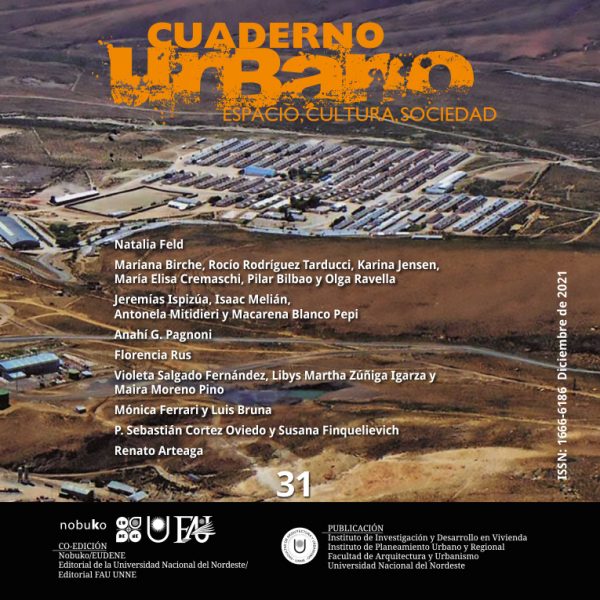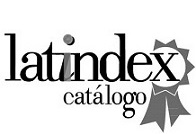Towards new ways of thinking about territory: a proposal for the development of the Gran La Plata region, Buenos Aires, Argentina
DOI:
https://doi.org/10.30972/crn.31315778Keywords:
Urban sustainability, territorial development, territorial planningAbstract
This article deals with analyzing the development of the La Plata Region from its foundation to the present, to propose alternative aimed at mitigating the effects caused by unsustainable urban development. For this, the principles considered as "sustainable" are discussed and it is investigated how their application can become a strategy for approaching sustainable development, in the context of the current technical-economic and socio-environmental paradigm.
As a result of the research, alternative development proposals are conceived from the various investigations carried out by the authors in the last twenty years.
Downloads
References
Birche, M. (2020). El sistema de espacios públicos como factor estructurador de la calidad del paisaje y el ambiente urbano [Tesis de Doctorado]. Facultad de Arquitectura y Urbanismo UNLP). Repositorio SEDICI http://sedici.unlp.edu.ar/ handle/10915/105803.
Cáceres, P. (2003). Análisis cualitativo de contenido: una alternativa. Metodología alternativa. Sico perspectivas, revista de la escuela de psicología facultad de filosofía y educación pontificia universidad católica de Valparaíso (2), 53-82. http://10.5027/psicoperspectivas-Vol2-Issue1-fulltext-3
Gorelik, A. (2004). Miradas sobre Buenos Aires. Historia cultural y crítica urbana. Siglo XXI.
Henríquez, C. (2004). Reflexiones sobre la Ciudad Sostenible, Modelos e Indicadores Urbanos. Biblioteca Digital DIBRI -UCSH Universidad Católica Silva Henríquez UCSH -DIBRI.
Jensen, K. (2018). Paisajes vacantes. El paisaje y los espacios verdes en la periferia platense. [Tesis de doctorado]. Facultad de Arquitectura y Urbanismo, UNLP. Repositorio SEDICI http://sedici.unlp.edu.ar/handle/10915/72319
Lefebvre, H. (1972). La revolución urbana. Traducción de Mario Nolla. Alianza Editorial.
Naredo, José Manuel (1996). Sistema de cuentas de los recursos naturales y el medio ambiente, ponencia presentada en III Congreso Nacional del Medio Ambiente, 25-29 de noviembre, Madrid.
Naredo, J. (2004). Sobre el origen, el uso y el contenido del término sostenible. Cuadernos de Investigación Urbanística, 0(41). http://polired.upm.es/index.php/ciur/ article/view/1032
Naredo, J. (2013). Ideología político económica dominante y claves para un nuevo paradigma. Revista de economía crítica, (16), 108-143.
ONU (1987). Nuestro futuro común. Alianza.
Piketty, T. (2015). El capital en el siglo XX. Revista Latinoamericana de Población, 9 (17), 169-172.
Ravella, O. & Giacobbe, N. (2001). La planificación urbana regional. UNLP.
Rocha, D. (1881). Discurso pronunciado el 1 de mayo de 1881, frente a la Legislatura al asumir sus funciones de Gobernador de la Provincia de Buenos Aires.
Rodríguez Tarducci, R. (2020). Informalidad urbana en el partido de La Plata: Análisis del proceso de ocupación y apropiación territorial, 1989-actualidad. [Tesis de doctorado]. Universidad Nacional de La Plata UNLP. Repositorio SEDICI http://sedici.unlp.edu.ar/handle/10915/95859
Sachs, I. (1981). Ecodesarrollo. Agricultura y sociedad, (18), 9-32.
Schumacher, E. F. (2001). Lo pequeño es hermoso. AKAL
Vallejo, G. (2005). El trazado ideal y los condicionantes naturales en el desarrollo urbano de La Plata. Estudios del Hábitat, Vol. II, N.° 8, pp. 61-70.
Downloads
Published
Issue
Section
License
CUADERNO URBANO sustains its commitment to the Open Access policies for scientific information, on account of the fact that both scientific publications and public funded research must circulate freely on the Internet and without restrictions.
CUADERNO URBANO ratifies the Open Access model in which the contents of scientific publications are available in full text free of charge on the Internet, without temporary embargoes, and whose editorial production costs are not transferred to the authors. This policy proposes breaking down the economic barriers that generate inequities both in access to information and in the publication of research results.





.jpg)








